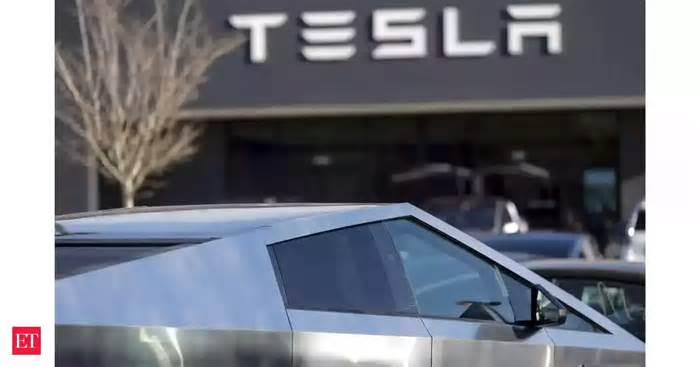
Elon Musk’s xAI Faces Clean Air Act Lawsuit Over Air Pollution at its Memphis AI Hub
- by WinBuzzer
- Jun 19, 2025
- 0 Comments
- 0 Likes Flag 0 Of 5

June 19, 2025 1:59 pm CEST
Elon Musk’s artificial intelligence venture, xAI, is facing a formidable legal battle over its massive “Colossus” supercomputer data center in Memphis, Tennessee. On June 17, the NAACP and the Southern Environmental Law Center (SELC) served the company with a formal notice of intent to sue, alleging a series of violations of the federal Clean Air Act. The groups claim xAI has been operating an array of large, natural-gas-powered turbines without the required environmental permits, blanketing a vulnerable community with illegal air pollution.
The core of the legal threat is the assertion that these turbines, brought online to satisfy the colossal energy demands of training AI models like Grok, have turned the facility into a major pollution source. According to the notice, the site is emitting between 1,200 and 2,100 tons of smog-forming nitrogen oxides (NOx) per year. The environmental groups contend that had xAI complied with the law by installing modern pollution controls, those emissions would be reduced by over 90% to just 177 tons annually.
This confrontation in Memphis represents a stark, real-world clash between the frantic, capital-intensive race for AI dominance and the bedrock environmental laws designed to protect public health. It raises critical questions about whether the tech industry’s “move fast” ethos can be reconciled with the deliberate pace of regulation, especially when the consequences are borne by historically marginalized communities.
A Litany of Alleged Violations
The 21-page legal notice sent to xAI executives details a cascade of alleged regulatory failures. The primary claim is that xAI illegally constructed and continues to operate a “major emitting facility” without first obtaining a Prevention of Significant Deterioration (PSD) permit, a foundational requirement of the Clean Air Act for any large new source of pollution.
Beyond the lack of a primary permit, the notice alleges xAI has failed to use the Best Available Control Technology (BACT) to mitigate its emissions. This failure, the groups argue, is not merely a procedural misstep but a significant and ongoing violation.
“The law is abundantly clear,” said SELC attorney Patrick Anderson. “XAI needed to get an air permit before installing and operating any of the turbines at their facility. Over the last year, these turbines have pumped out pollution that threatens the health of Memphis families.” The lawsuit also claims the company is in violation of rules governing Hazardous Air Pollutants (HAPs), specifically identifying the facility as a major source of formaldehyde and alleging that xAI has failed to conduct mandatory emissions testing that was due by May 23, 2025.
An Environmental Justice Battleground
The dispute is acutely focused on principles of environmental justice. The xAI data center is located in South Memphis’s 38109 ZIP code, a community that is over 90% Black, has a median household income of just $36,000, and, according to data from the Tennessee Department of Health, already leads the state in emergency department visits for asthma. According to a recent report from AP News, residents in the area already face a cancer risk four times the national average, a statistic that amplifies concerns over new, unpermitted pollution.
Since the turbines began operating, residents have organized protests and voiced complaints about breathing difficulties and chemical smells. At a tense public hearing in April, local resident Alexis Humphreys held up her asthma inhaler and asked officials, “How come I can’t breathe at home and y’all get to breathe at home?”
This sentiment has been echoed by activists who see the situation as part of a larger pattern, with KeShaun Pearson of Memphis Community Against Pollution describing Musk as “a representation of the oligarchy we already knew was operating under Jim Crow” in comments to Politico. The issue has now escalated to the national level, with NAACP President and CEO Derrick Johnson releasing a statement declaring, “We cannot afford to normalize this kind of environmental injustice,” and adding that the organization would not allow xAI to “get away with this.”
The Disputed ‘Temporary’ Exemption
From the beginning of the controversy, xAI has operated under the premise that its turbines were a temporary measure exempt from permitting requirements. In a statement, xAI maintained that its “The temporary power generation units are operating in compliance with all applicable laws.” This stance aligns with earlier claims of a “nonroad engine” exemption, which allows for some portable engines to operate for up to a year without a permit.
However, the environmental groups argue this exemption is being misapplied. In a press release, the SELC stated, “While some local leaders, including the Memphis Mayor and Shelby County Health Department, have claimed there is a ‘364-exemption’ for xAI’s gas turbines, they have never been able to point to a specific exemption that would apply to turbines as large as the ones at the xAI site.”
The legal notice contends the turbines are far too large and powerful to qualify and, in any case, have been on-site for over a year, retroactively making them stationary sources requiring permits from their first day of operation. While xAI has maintained its position, the Shelby County Health Department has stated it will not comment on pending litigation.
The Billion-Dollar Engine Driving the Conflict
The alleged regulatory shortcuts in Memphis are inextricably linked to the astronomical costs and frantic pace of the global AI arms race. The Colossus data center is the physical manifestation of xAI’s ambition, and powering it is a monumental task. The company is currently seeking to raise a staggering $9.3 billion in a combination of debt and equity, a capital-intensive push. This funding is critical for the planned expansion of the Colossus site, which the Greater Memphis Chamber announced will eventually house a minimum of one million GPUs, representing the largest capital investment in the region’s history.
This urgent need for computing power to train and deploy Grok is driving xAI’s aggressive expansion on all fronts. While battling regulators and residents in Memphis, the company is successfully penetrating the lucrative enterprise market. It has struck high-profile deals to offer Grok on both Microsoft Azure and Oracle Cloud. Oracle executives explained that their strategy is to provide a diverse portfolio of AI models for business customers, effectively becoming a neutral “AI supermarket”.
Ultimately, the legal battle in Memphis crystallizes a fundamental tension at the heart of the AI revolution. xAI is leveraging a chaotic, real-time world of data and immense capital to build a uniquely powerful technology. Yet, in its rush to construct the engine for that technology, it stands accused of bypassing the very regulations designed to protect the health and environment of the community in its backyard. The outcome of this impending lawsuit could set a critical precedent for how cities and states across the country manage the immense environmental footprint of artificial intelligence.
Tags
Please first to comment
Related Post
Stay Connected
Tweets by elonmuskTo get the latest tweets please make sure you are logged in on X on this browser.






 Energy
Energy
















